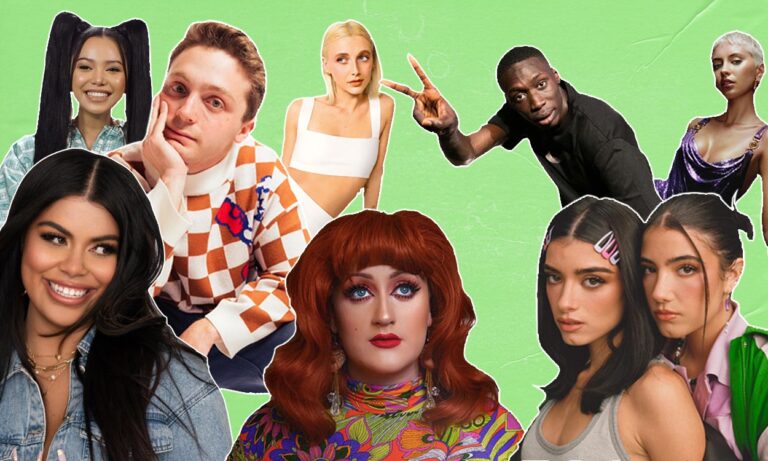Who are gen Z? Introducing the new generation

Who are gen Z? Well, the term ‘gen Z’ only saw its first spike on Google Trends back in November 2019. Since then however, it’s become almost impossible to spend more than a couple of days without coming across the term. They’re everywhere, and they’re certainly not going anywhere anytime soon.
As a next gen-focused media publisher, SCREENSHOT is the expert source on everything generation Z. From pop culture moments and viral TikTok trends spearheaded by the demographic cohort to work trends they’ve (both knowingly and unknowingly) put in motion, everything we cover is created with gen Zers in mind.
So if you’re looking to wrap your head around who this generation is and what makes them stand out from their predecessors, you’ve come to the right place. Here’s everything you need to know about gen Z.
What is gen Z?
Although you might find slightly different dates online depending on which source you go to, generation Z is often described as the cohort demographic comprising people born between 1996 and 2010. Just like every generation before it—and probably like every generation after it—gen Zers’ identity and behaviours have been shaped by how they grew up, aka alongside the digital age, climate anxiety, a shifting financial landscape, and more recently, COVID-19.
They’re also often called ‘digital natives’ because they’re part of the first generation to grow up with the internet as a part of daily life. Already, the generation spans a wide range, making it ever so multifaceted and fascinating: the oldest gen Zers have jobs and bills to pay, while the youngest are still preteens.
What years are gen Z?
As stated above, gen Z are born between 1996 and 2010. As someone who was born in 1996, my spot on the older end of the cohort allows me to also use the term ‘zillennial’ to define myself. Long story short, I’m a cusp generation baby—I’ve already been working for a couple of years, I’m financially independent, but you’d have to pay me a whole lot of money to see my TikTok daily screen time.
Gen Z characteristics
When asking yourself ‘who are gen Z?’ it’s important to note that gen Z spend a lot of their time online. After all, they’re the very first generation to grow up with the internet. What did you expect, right? This means that a lot of the connections they make are built online, whether that’s romantic or platonic.
But that isn’t to say that gen Zers aren’t outgoing or sociable. Instead, social media and dating apps have allowed them to build different kinds of relationships to their predecessors. But with unlimited access to the internet and a voracious appetite for online content also come worrying side effects.
Because these digital natives can go online when looking for any kind of information, including news, they also have the least positive outlook and the highest prevalence of mental illness of any generation. This doomism is further fueled by growing global unrest, wars, financial crises, and educational interruptions due to the pandemic.
Meanwhile, climate anxiety is also rearing its head as more and more gen Zers report that they think about the dreadful fate of the planet on a daily basis. And don’t even get me started on the shrinking pensions, unattainable housing prices and the current inflation we’re all struggling with.
All that being said, it’s not all bleak being a gen Zer. Because of how open we tend to be when it comes to mental health stigma, we’re also less inclined to discriminate against people with mental illness. And hey, we’ve always got TikTok to distract us.
As stated by McKinsey, the video-sharing app pretty much “rules trends, feelings, and culture for gen Zers, who make up 60 per cent of the app’s one billion-plus users. Gen Zers flock to corners of the internet where they can discuss their passions and interests with those who share them—from gaming to Kpop—bonding with both people they know in real life and ones they’ve only met online.”
Millennials vs gen Z
Gen Z is the demographic cohort that succeeds millennials, which is the term used to describe individuals born between 1981 and 1995. As a zillennial myself, I relate more with the values and behaviours of gen Zers, which is why I often join in on the infamous millennial slander most gen Zers have been participating in for quite some years now. And before you get offended by any of it, keep in mind that generation Z is also characterised by its dark and cynical sense of humour, and total absurdity when it comes to memes. So if you’re a millennial reading this, take it with a grain of salt, yeah?
In terms of key differences between the two generations, although it’s impossible to pinpoint every one of them, there are clear key distinctions to acknowledge. Unlike gen Zers, millennials are more optimistic thanks to their encouraging Baby Boomer parents—that’s not to say that it all came easy to them though.
Despite their triggering obsession with skinny jeans, avocado toast and thinking that liking Harry Potter is a personality trait, millennials have had to face very similar struggles to the ones we gen Zers are currently grappling with. So why don’t we all bury the hatchet for a minute and stop adding fuel to the fire (aka the #millennialvsgenz on TikTok, which currently sits at 65 million views)?
What is after gen Z?
Just like millennials precede gen Zers, generation Alpha comes right behind it. Defined as those born between 2010 and 2025—yeah, they’re so young that some of them aren’t even born yet—gen Alphas are already making waves online. What for, you ask? Well, despite their young age, they’re already surprising the rest of us with their, well, slightly odd sense of humour. And that’s coming from a zillennial…





